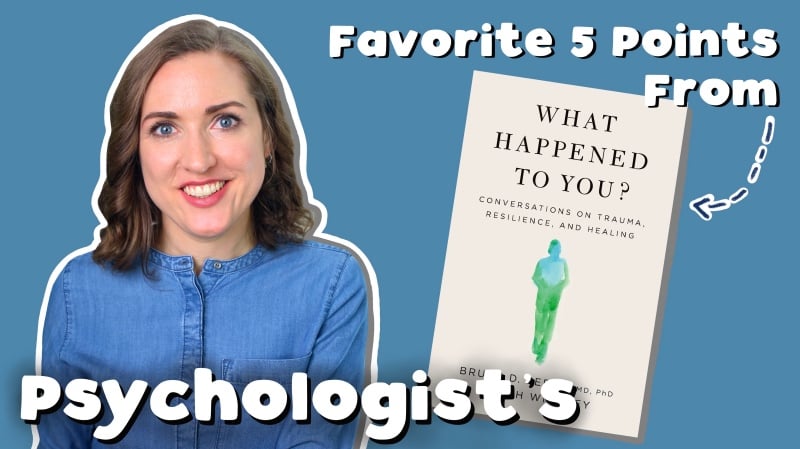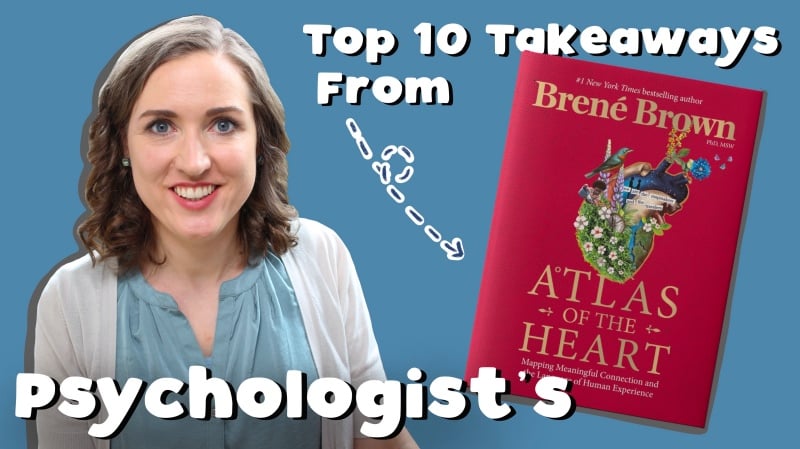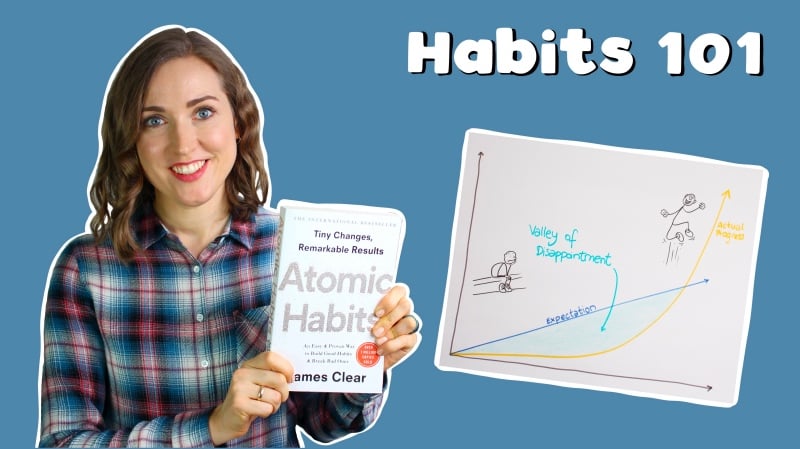
These books are eye-openers, motivators and guides, and my 10 favorite books on personal growth. Let me know, if you decide to read any one of them, and what you think! Also, do you have any book recommendations for me?
1) Reinventing Your Life by Jeffrey E. Young & Janet S. Klosko (1993, Penguin Life)
...is one of the foundational books of schema therapy. The authors explain different ways we recreate our past (childhood) and how to change that. These different patterns (schemas) are called “lifetraps” in the book. The authors take you through 11 lifetraps, for example: the abandonment lifetrap, the emotional deprivation lifetrap, the “I'm worthless” lifetrap and the lifetrap of people pleasing. When discussing each lifetrap, the authors explain the signs of it, what caused it and how to step out of it. The insight of the authors is incredibly deep, providing many aha-moments for their readers.
2) Daring Greatly by Brené Brown (2012, Penguin Life)
...is
like an instruction manual to life. Not the “101 how to tips” kind, but
the kind that opens your eyes to the core themes of life and how they
affect us. In Daring Greatly Brené Brown creates awareness
about the connection between our fears of getting hurt, and the unhealthy
armory we use to protect ourselves (foreboding joy, perfectionism,
numbing...). Then, she explains how to leave the armory behind, dare
greatly, and step into life, vulnerably and courageously.
3) The Child In You by Stefanie Stahl (2015, Kailash)
...helps
you understand yourself better, your core beliefs, why you act in
certain ways and how your childhood experiences contributed to forming
who you are today. Specifically, you'll learn about the defense strategies you acquired as a child that you may still be using, although they've lost their usefulness and stand in your way. With this knowledge, you can sort through what you
want to keep and where you want to change. When we stop unconsciously
projecting our past into the present, our life improves dramatically.
4) Secure Love by Julie Menanno (2024, Cornerstone)
...explains the fundaments of a lasting and emotionally close relationship. The author starts out by introducing you to different relationship (“attachment”) styles. She then continues on mapping out how these styles interact with one another in a relationship. You'll learn why you and your partner get into big fights over small things, and how to interrupt these negative cycles and create and strengthen your relationship bond. The book is full of vivid examples and practical tools that will make a real difference for you and your partner.
5) The Happiness Trap by Russ Harris (2007, Exisle)
...is
about how we make life more difficult by demanding to be happy all the
time. This expectation can urge us relate to difficult experiences in a
way that makes them even harder: fighting against reality, struggling to
try to push unpleasant sensations out of our awareness. When we learn
to make room for unpleasant sensations, we free ourselves up to pursing
what matters to us because we're no longer busy fighting reality.
6) Who You Were Meant To Be by Lindsay C. Gibson (2000, Blue Bird)
...facilitates
a differentiated reflection on where you are in life and how to move to
where/who you'd like to be. Lindsay C. Gibson explains what holds us
back, how to uncover who we are authentically, what to expect during a
change process and how to navigate challenges like insecurities and
anxiety, once we've started taking the first steps. Lindsay C. Gibson is
one of my all-time favorite authors, she's a deep and poetic person and therapist, and I recommend her other books as well.
7) Focusing by Eugene Gendlin (1978, Rider)
...teaches
you six easy steps to accessing the knowledge of your inner world.
Refining our contact to our inner world is an important step in almost
all change and growth processes and this book shows you how to do that in an accessible language.
8) Nonviolent Communication by Marshall B. Rosenberg (2015, 3rd edition, PuddleDancer)
This is another classic, and one of the best books on communication I've read. You'll learn how to recognize and express your needs and boundaries effectively without harshness, defensiveness, or blaming the other person. The tools in this book contribute to the fundament of relationships that have room for boundaries, are emotionally fulfilling, close and authentic.
9) The Seven Principles For Making Marriage Work by John Gottman (1999, Harmony)
...stands out because it is highly applicable. Every chapter includes powerful exercises, reflection prompts and conversation starters you can try out with your significant other. This book not only explains why it is important to nourish your relationship in certain ways, but also how to actually do it, which questions to ask, and which steps to take. You don't have to be intuitively good at communication and relationships to understand and greatly benefit from this book.
10) Adult Children Of Emotionally Immature Parents by Lindsay C. Gibson (2015, New Harbinger)
...is a great book for you, if you want to understand why you may have felt lonely and misunderstood as a child of parents that weren't able to provide the emotional intimacy and guidance in regard to emotions every child needs. The book also explains how to break free of the longterm effects this parenting had on you and how to deal with emotionally immature parents (people) in a way that doesn't require you to sacrifice yourself.
If you're interested in more book talk, these are YouTube videos in which I've commented on personal growth books:
What Happened To You: My Top 5 Favorite Points From Oprah Winfrey & Dr. Bruce Perry’s New Bestseller
“What happened to you?” was one of the best books I listened to in the last year! It breaks down topics that are challenging to understand and talk about, and makes them easily accessible. In this video I share 5 main points from “What happened to you?: Conversations on Trauma, Resilience, and Healing”.
Atlas Of The Heart: My Top 10 Takeaways From Brené Brown’s New Bestseller
“Atlas of the Heart” by Brené Brown is an insightful book about human emotions and experiences that are connected to emotions. She maps out different kinds of emotions and explains how they are similar and different from each other. Knowing about emotions like this is a fundamental skill for processing emotions. I really enjoyed listening to “Atlas of the Heart” and in this video I share my top ten take-aways.
Habit Building: My Top 10 Key Takeaways From The Bestseller “Atomic Habits” (James Clear)
Habits are powerful—we fall into them without much push or shove, they're automatic patterns that play out by themselves. That's an enormous support when a habit is empowering. When a habit isn't in line with our deepest values, it becomes tricky since changing it requires strategic commitment. Wether you want to build a new habit or let go of an exisiting one, in this video you'll learn what you can do to increase your odds of success and make the process as seamless as possible.


